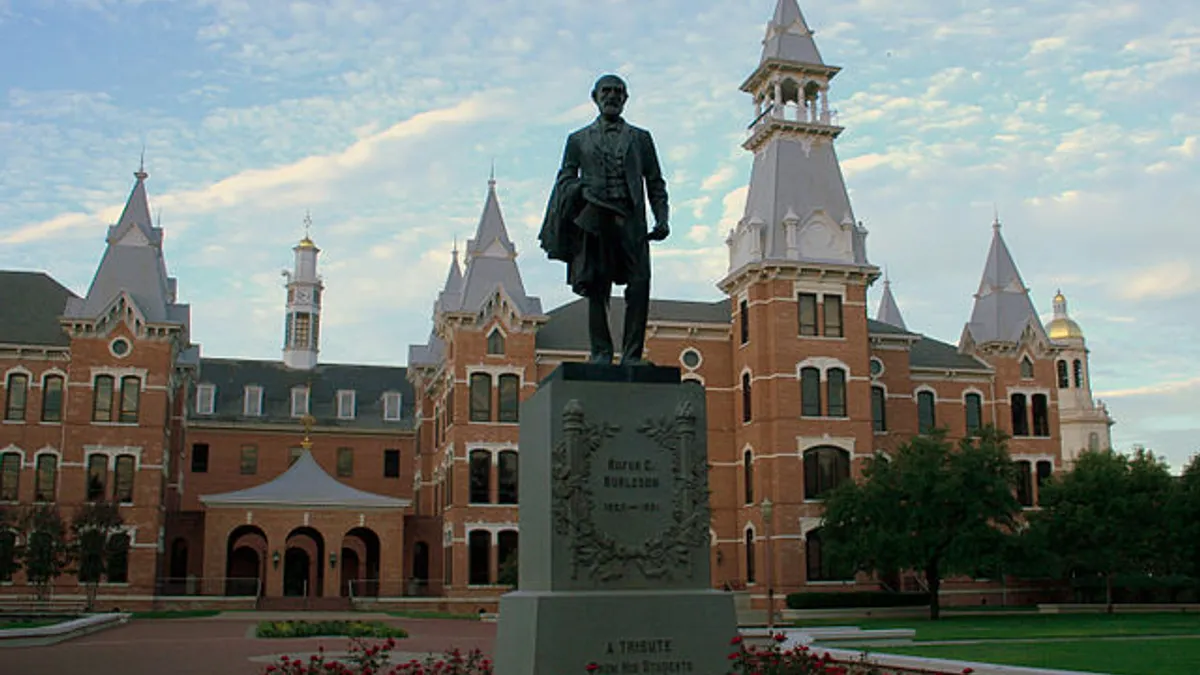Donors and supporters of Baylor University’s athletics program made headlines recently with the formation of a new group calling for transparency from the university’s board of regents. Their issue: ongoing controversy surrounding the school’s handling of alleged sexual assaults, committed by a number of former football players over a five-year period.
The Bears for Leadership Reform, whose Facebook page has attracted more than 9,000 followers since its debut, accused the board of being "tone deaf" to the well-being of students and the brand damage associated with an August 2015 conviction of former football player Sam Ukwuachu, whose assault of a Baylor female student athlete prompted an investigation that revealed years of administrative cover-up and wrongdoing in the handling of similar incidents dating back to 2011.
The saga claimed the jobs of former president Kenneth Starr and former head football coach Art Briles, and now grows questions about how higher education institutions can best respond to issues of scandal. How can campuses more effectively prepare for and navigate crisis? And are the consequences for unsatisfactory response?
Surveying the damage
Minced words are not a featured menu item for the Bears for Leadership Reform, especially in a recent profile of the group published by the Houston Chronicle. Among its 300-member ranks of former trustees, football players and graduates with acclaim and wealth built in many industries, the possibility of levying financial sanctions against the program are not out of the realm of possibility.
Some experts say that the board will have to be more forthcoming with information to preserve its standing with these key stakeholders.
“Part of it is their process. In cases like this, you have to assess the damage, and pull together your 10-20 best donors and the institutional leaders to say, ‘here’s what happened and here’s how we’re going to make sure it doesn’t happen again,’” says Tom Wilson, a vice-president with Campbell & Company, a national consulting firm with specialty in nonprofit fundraising, executive search management and strategic communications.
“Part of it is arming the institution at all levels. It means having talking points for our student leadership, alumni leadership, board members and fundraisers... so once we have our act together, we can go meet our top donors and they can become message ambassadors as well.”
For schools like Baylor and Penn State University, both which have faced high-profile coverage of rampant sexual assault claims over a number of years, Title IX issues present a different challenge for reestablishing trust and confidence among boosters and supporters, and in maintaining compliance with federal Title IX guidelines and legal statutes.
Janet Judge, president of Boston-based Sports Law Associates LLC and renowned legal expert on NCAA and Title IX compliance, gender equity, hazing, harassment and pay equality, says that preparation and structure is a primary key in navigating crisis.
Positioning leadership for success
“Effective interim response can be a complicated process in academic settings, residential living arrangements, work assignments, and intercollegiate athletics participation,” she says. “Transparency in investigations is a complex discussion. There are privacy laws that a school is obligated to follow and that apply to all community members."
Judge says that hiring and staffing Title IX compliance offices is a key to preventing widespread violations or misinterpretations of sexual assault and gender equity complaints. She cites the growing practice of broadening advisory functions in Sexual Assault Response Committees (SARC) which can offer counsel to Title IX coordinators with advice about immediate response and care; critical efforts in the effort to manage crisis.
Thomas Fladung, vice-president of Hennes Communication in Cleveland, says that the unique challenges of discovery and disclosure in higher education crises make preserving philanthropic support tough, but that is doesn’t preclude being honest and upfront with key stakeholders.
“If you have to make a decision that upsets one set of those stakeholders, then you tell them that, and tell them why you’re doing it,” he says. “Title IX does limit the ability to tell it all, and most people will accept that, and understand why you can’t. But crises have different life spans; look at how long Penn State’s issue has gone on. And that’s why you have a plan, when you have those crises that play out over years, things will pop up and you have to have a plan for when they do.
“You can’t anticipate the instances, but laying out the philosophy and objectives and who talks about what issues are the elements that matter most. When the crisis hits, it’s not the time to debate.”

















